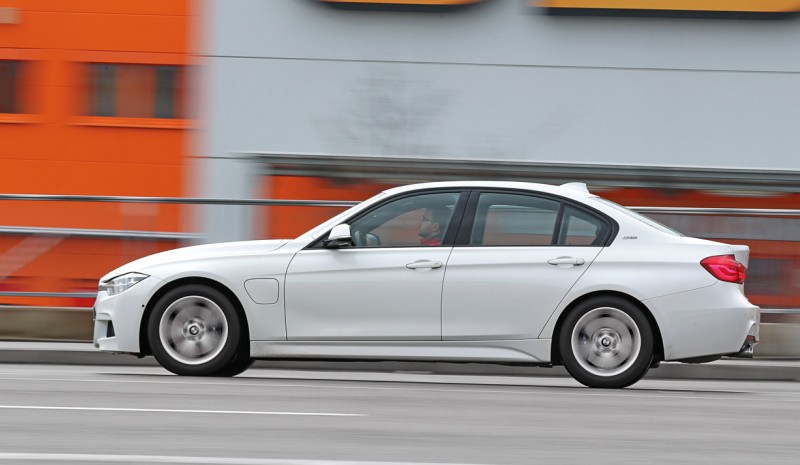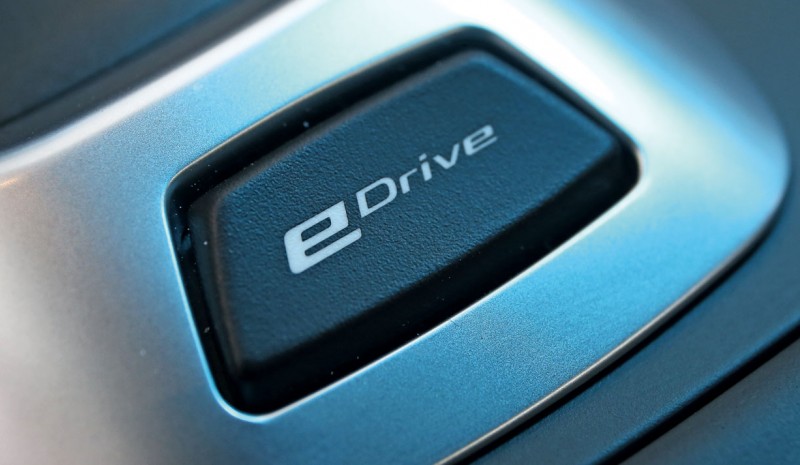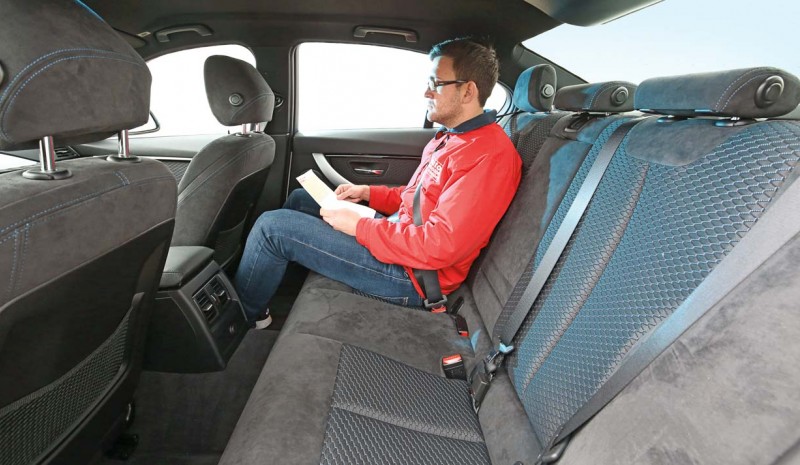BMW 330e vs VW Passat GTE: two plug-in hybrids, facing
The BMW 330e and the Volkswagen Passat GTE plug-in hybrids are completely addicted to electricity, without it they become almost conventional cars.


The result of this comparison between the 330e BMW and Volkswagen Passat GTE It depends heavily on the approach you have as a user and what you seek, because we are facing two distinct ways of understanding plug hybridization and both are perfectly valid. Before buying one I recommend that you analyze well the data we have measured and how to manage electricity that each car has, and then adapt to the use you intend to give either not go wrong.

The difference between a normal hybrid and a plug is found primarily in the management of electricity. While the hybrid battery needs a fast loading and unloading, the plug-in hybrid needs more storage capacity and enough power, but not so much that your battery is charged quickly, which logically affect the loading time moving. And here is where the big difference between BMW and Volkswagen Passat 330e GTE. To achieve the same type of car in BMW and Volkswagen have chosen different paths. The BMW 3 Series sets a gasoline engine 2 liter turbo double entry of 184 horses and combines with another 65 kW power, to achieve a combined capacity of 252 horses. Instead, the Volkswagen Passat puts a smaller thermal engine, a 156 hp 1.4, and a larger power with 85 kW, to reach 218 horses. For batteries both come to those Ion, much larger VW in the BMW, with the first 9.9 kWh to 7.6 kWh versus the second. These batteries offer the ability to store a part for use solely on electric, with a theoretical autonomy (which marks the car when newly loaded is not real) of 27 km at 50 km BMW and Volkswagen in, and use the other hand to work as hybrids.
Both offering circular or save said hybrid electric range for use mode when more interested. If you have exhausted the battery can be recharged either in a wall socket (4.15 Passat hours, 3 hours in a conventional plug 330e) or up, at the expense of spending more gasoline. The latter has much practical, but not economic sense, especially to later carry the gasoline engine stopped in restricted areas. BMW has less electric range, but is able to recharge the battery faster, however the Passat is just the opposite. In both you can move up to 120 km / h totally electric. The actual range depends on driving, but will be around about 20-22 km in the BMW and approximately 38-40 km in the Passat; You can do more, but at the cost of going very slowly and not using much the climate. This allows you, if you live in the city and do something less than that distance every day, not get to start the gasoline engine in a while, being able to use the car every day like a 100 by 100 electric it were. And this is where most interests you have a plug-in hybrid.
The BMW 330e has a very good and that once depleted battery recharging can go in hybrid mode like a Toyota Prius it were, and if you do you reward efficient driving more kilometers of additional electrical distance. Instead It is not well established mode to save electricity, because if the battery is below 50 percent in the “Save Battery” mode without asking the load automatically until half, with the impact this has on consumption. If you save the Passat from the beginning, but in the hybrid mode is consumed slowly, so at the end of a long trip can get almost without electric range. In the charging mode it takes longer to load than its rival, and that the car itself lets you select the intensity load.
In electric mode the Passat GTE is much faster, besides having greater autonomy, to the point that manages to go from 0 to 100 km / h in 11.66 seconds versus 17.34 seconds it takes the BMW. You’re not going to make races, but indicates the difference verve that between a car and another in this way. Once we leave work in normal mode, ie in hybrid mode, this situation turns around and BMW devastates the superior performance and that we can consider the GTE as a very fast car. Road consumption is similar in both, always with the exhausted electric range, except that the more kilometers do spend less since the BMW will re-using as much energy that is able to recover. In the small town Passat engine wins the battle and manages to spend up to 2 liters less than its rival. With this data the Passat seems more advisable to do more kilometers in city, since also adds electric range as we have measured on a plug-in hybrid. Instead If you give priority to road and just going to circulate city about 20 km at most, the one I recommend is the BMW. In any case, and this applies both in the city if you exhaust the battery average consumption are going to do is ridiculous, since the media is done with much of the distance circulating in zero emissions.
BMW behavior I liked more because it does not feel like a hybrid. Instead the Passat, although it has some guidance in its GTE sport mode and has very good performance compared is less precise in its suspension and it shows a little weight. Your brake pedal feel changes depending on the mode in which flow is not bad but different. There is safety in the two and a similar comfort, Very well equipped and better space in the Passat.
You may also like:
BMW IPerformance: try the plug-in hybrid BMW
PSA electric cars will have 450 km of autonomy
All electric and hybrid plug: Buying Guide
Volkswagen Golf GTE: We tested the hybrid and sporty Golf



